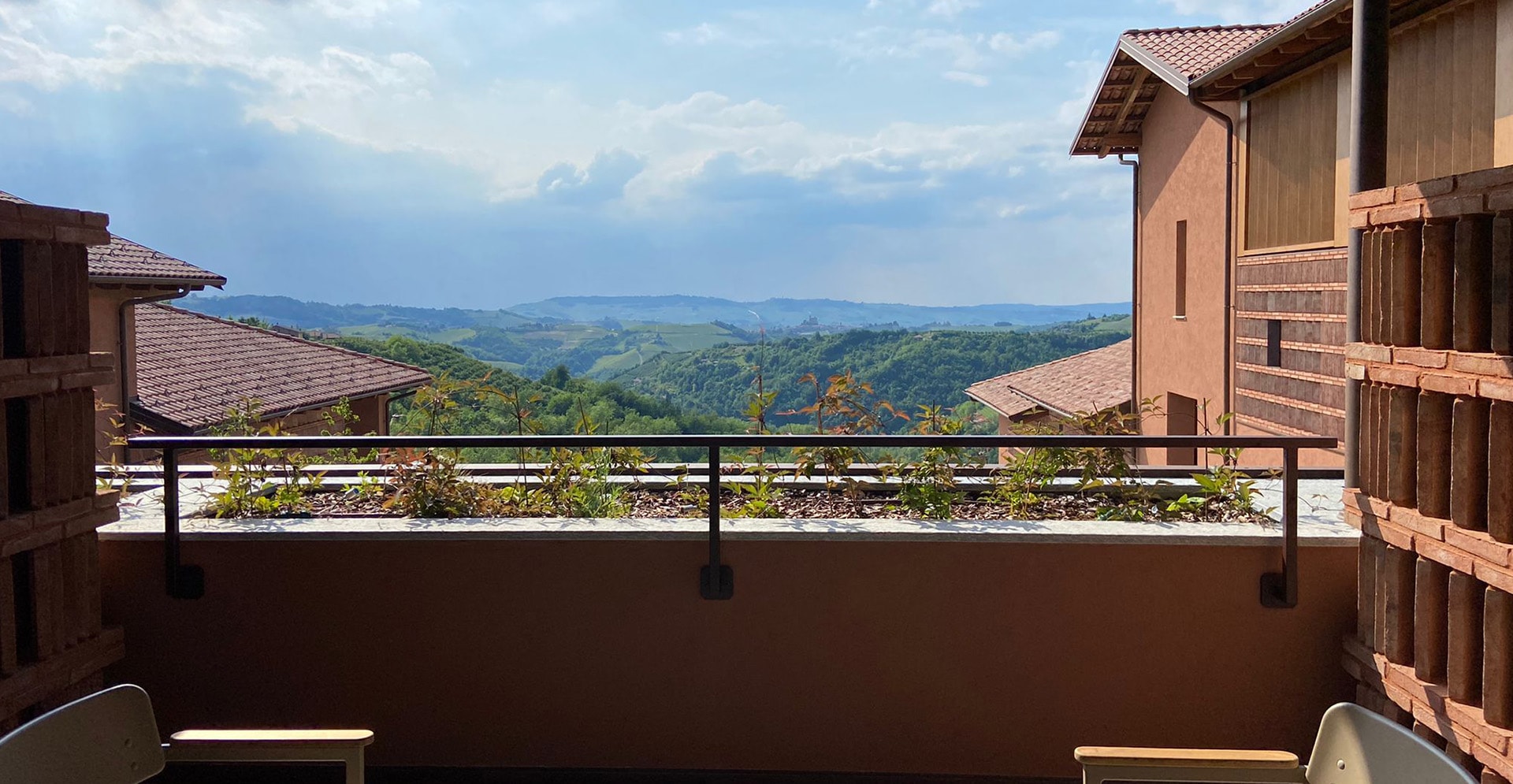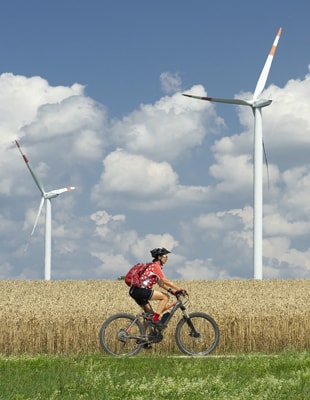Table of Contents
The Challenge
To redevelop and renovate two abandoned buildings, converting them into a sustainable luxury resort that respects and brings value to the local nature, landscape and culture.
40
beehives to help natural pollination
Here in the Langhe, the very heart of Piedmont for food and wine, two unfinished buildings from the 2000s had stood abandoned for some time. The new owner, the American Krause Group, bought the buildings and the surrounding estate, with the aim of redeveloping the place based on the strictest environmental values. Architectural work and interior design were entrusted to the Italian firms Gas Studio and Parisotto + Formenton Architetti. Arcadis Italia was hired for coordination and cost and project management, and Malabaila & Arduino Costruzioni for the construction itself.
-
READ MORE
The hotel’s setting in the hills of the Langhe, a UNESCO World Heritage Site, meant the works needed careful planning, with respect for the local nature, landscape and traditions. The working team came up with a project that, right from the initial renovation, drew on the value of the surrounding environment and culture, going to local producers and businesses.
The Solution
Sustainability and local products: maintain the existing structure to limit waste, and use traditional local materials, colors and produce to minimize environmental impact.
21
minutes' drive from the nearest landfill
Rather than demolish the existing structures, the new owner chose to renovate them. The result was a horseshoe-shaped resort hotel, with a second building, Villa Agreste, for private events. The work was done with reference to natural colors and materials, in total harmony with the natural surroundings and with the utmost care for the land and the animals and plants that live in it.
The boutique hotel now stands overlooking more than 100 acres of vineyards spread out over rolling hills. Its 39 rooms and suites marry sustainable architecture with interiors inspired by Piedmontese tradition, while offering a luxury yet authentic experience.

The Impact
A boutique hotel typical of the local area, where it sits in perfect harmony. A completely sustainable luxury resort run on the principle of circularity, with advanced energy efficiency and water management systems.
100%
of water consumed at the hotel is recycled, purified and reused
Casa di Langa is a luxury resort where every detail is sustainable. Luserna stone, fully recyclable terracotta and plasterwork in raw earth are just some of the quality materials chosen for the interiors. They all come from the local area, which not only means fewer emissions from transport but is a boom to the local economy.
The project does not end with building the resort; it also covers the World Heritage hills. The estate will be re-wooded with native trees and other plants. Vineyards and orchards, particularly hazel, are typical of the area. The project seeks to protect local products and respect nature. The new planting will follow the overall philosophy of the place. Walking routes have been planned based on the existing footpaths trodden by wine growers.
Every choice follows the principle of circularity. One example is the 40 beehives put up to help natural pollination and produce honey for the hotel. A great deal of equipment and material is reused on site, but what does need to be disposed of is sent to nearby sites, the closest of which is just 21 minutes’ drive away.
-
READ MORE
From the design stages, thought has gone into reducing consumption, with energy being first and foremost. The complex now relies on a mixture of green energy sources, including for heating and cooling the villa and the swimming pool. The war on waste does not ignore the water system either. All water consumed at the resort is recycled, purified and reused in all the buildings as well as to irrigate the vineyards, along with rainwater.
Finally, things at the resort restaurant have changed to satisfy new Covid-19 regulations, with care, as usual, for the environment. Kitchen waste is composted and used in the vegetable garden, in line with keeping everything local and minimizing the carbon footprint of food at the hotel.

Connect with Raji Arasu for more information and questions.
Not done reading?
This also might be interesting for you
- Related Insights

















